Darren Hicks hard road back to World Championship and Paralympic glory
Darren Hicks went from one of the worst accidents in recent SA history to Paralympic glory – but few know the true personal cost, writes Jess Adamson.
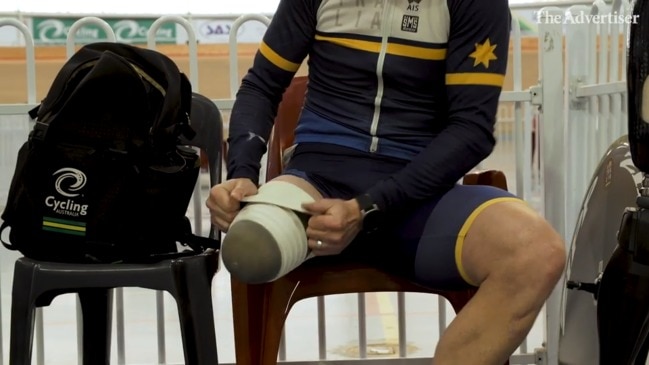
Lifestyle
Don't miss out on the headlines from Lifestyle. Followed categories will be added to My News.
Darren Hicks is asleep in a dome tent. The air is thin, as if he’s 2750 metres above sea level.
But he’s not. The tent engulfs the queen size bed in his southern suburbs home. A pump is drawing air from another room and removing its oxygen before driving it into the dome.
This is what dedication looks like. True grit. Sacrifice.
In many ways, he’s a different man to the one he was in 2014.
Let me take you back to August 18 that year.
Keen to add heavy vehicle driving to his resume, Darren was behind the wheel of a Cleanaway sewage truck. He’d been in the job less than a week.
“I had just started working as a truck driver, that morning I was sent up into the Adelaide Hills,” he says.
“As I was coming down the steeper part of one of the hills that’s when everything catastrophically failed in the truck.
“So when I went to use the brakes, immediately I got a warning light and an alarm sounded in the cabin of the truck. I had no brakes.
“It was around a minute or so to when I got to the bottom of the hill. I definitely recall being certain that I was going to die.
“At the bottom of the hill, the lights in front of me to go straight had quite a lot of cars. The light to turn left had only one car, I manoeuvred the truck and somehow I just grazed the car, rolled the truck and from there I collided with the other cars on the side of the road.
Two people in those cars were killed, 56 year old Tom Spiess and 41 year old Jacqui Byrne.
As Darren lay unconscious in hospital, Carys, his partner at the time, had to make the agonising decision to allow doctors to amputate his right leg.
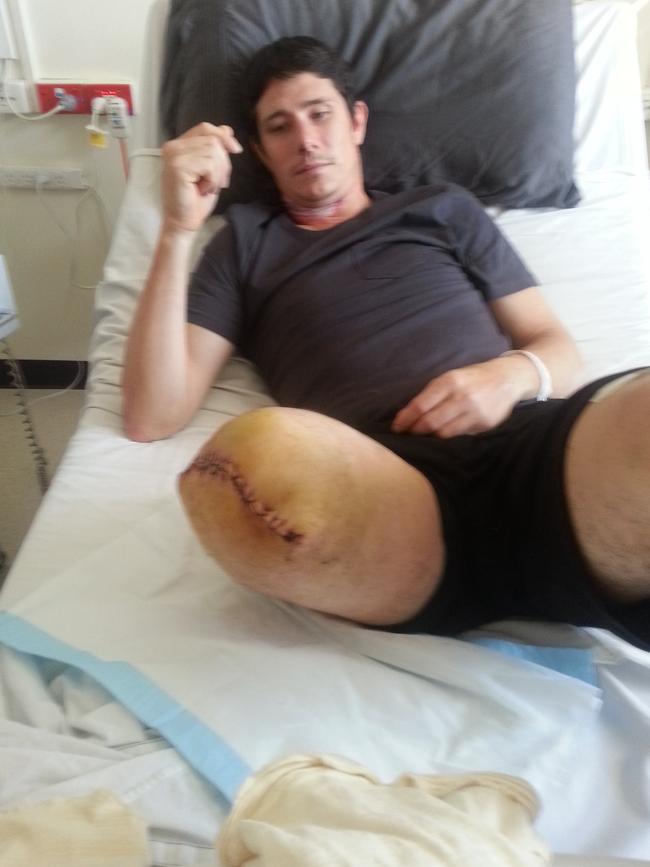
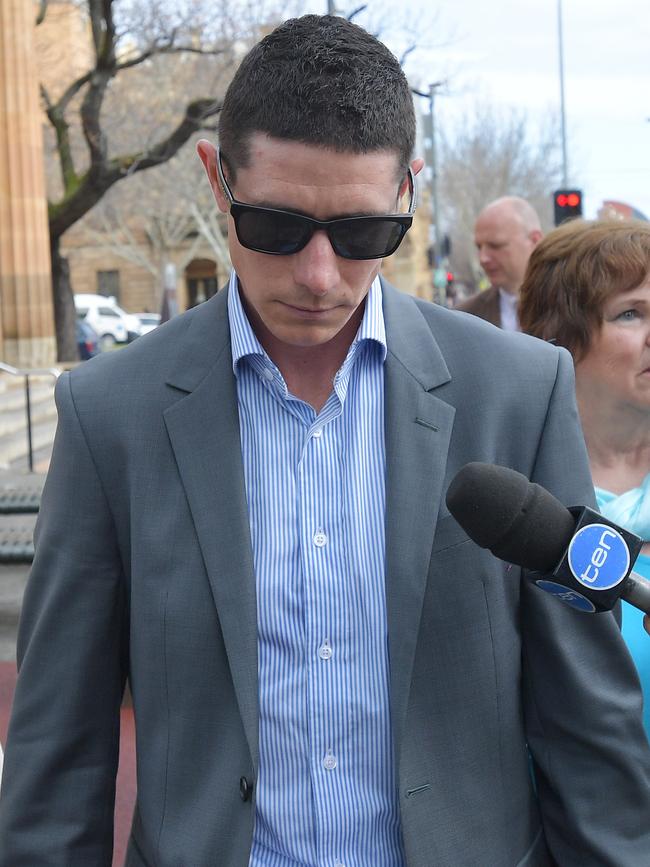
And there were dark days ahead.
Darren was charged with two counts of death by dangerous driving.
Imagine the emotional toll that would have taken. He was a broken man dealing with his own injuries, including a broken C2 vertebra, living with the very real possibility he could be jailed for causing the accident.
He started to sink into a dark hole of drinking and depression. There was a time he wanted it all to end.
But in the months that followed, something extraordinary happened. Darren turned to cycling, something he’d loved as a youngster, to help get him through the trauma.
The doctors said he couldn’t do it but just 3 months after the accident he was riding a bike. He later learnt to pedal with one leg, without a prosthetic, and after two years of competition, was selected for the World Championships in South Africa.
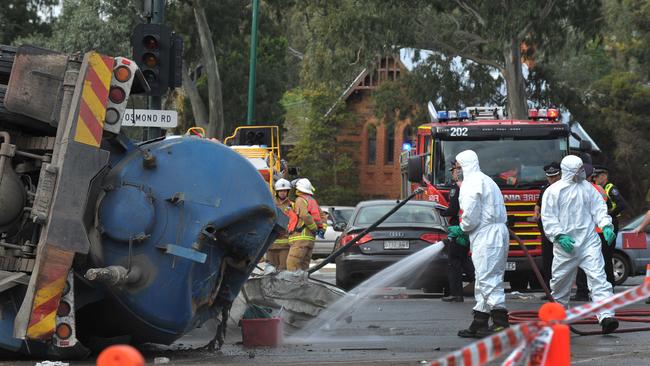
In a bitter twist, Darren was told he was ineligible to ride because of the criminal charges – until Jan Spiess, the widow of one of the accident victims spoke out.
“We came to no other conclusion than there was something wrong with the truck – he’d done nothing wrong. The entire family was on his side,” Jan said.
“We weren’t holding any animosity towards him, we just wished him a speedy recovery.”
The day before the trial began in 2018, prosecutors dropped the charges, finding the truck’s brakes were faulty and Darren hadn’t caused the tragic deaths. He’d fought for four years to clear his name.
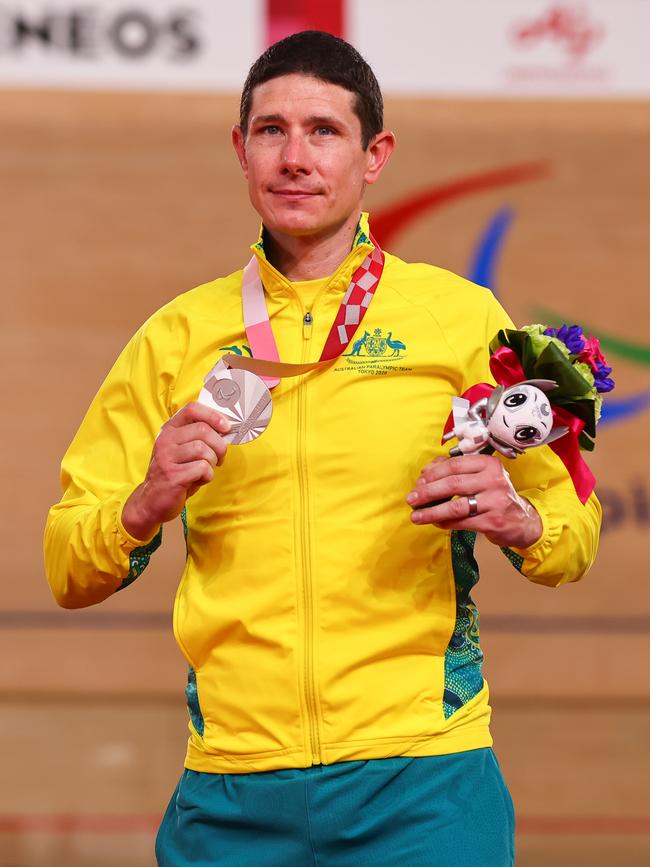
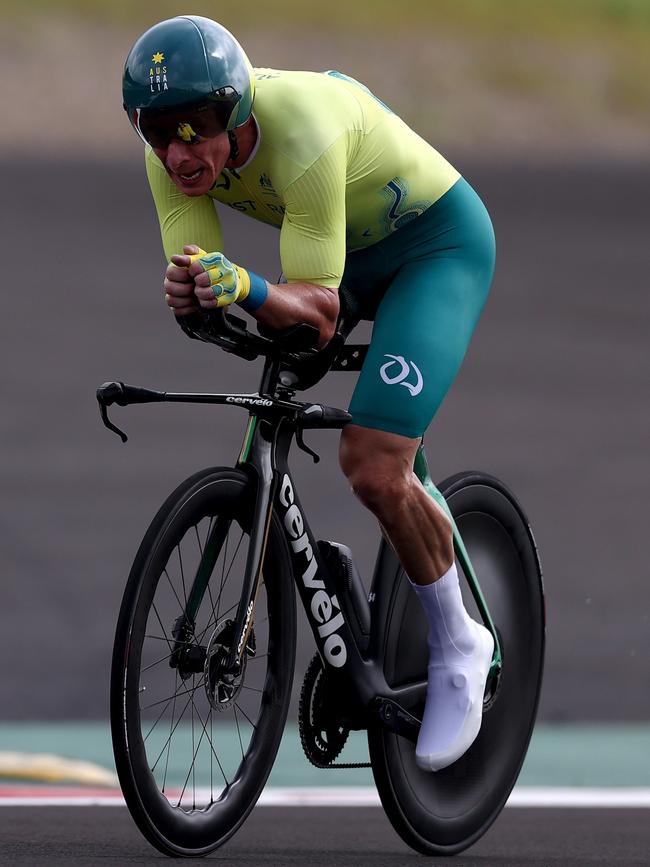
He went on to win two silver medals at the World Championships and four years later, claimed gold and silver at the Paralympics in Tokyo. Greatness is rarely achieved on your own and Darren credits two coaches, Loz Shaw and Cam Jennings for teaching him to believe in himself.
The freeway accident changed the direction of Darren’s life forever. It’s unbelievable to think of the success and achievement that’s come from so much heartbreak and pain.
Next month he’ll travel to Paris and Bordeaux for an intense training camp before facing the world’s best riders at the World Championships in Glasgow in August.
It’s a dress rehearsal for next year’s Paris Paralympics which are firmly in his sight. Right now he’s training 6-7 days a week, clocking up between 450 and 500 kilometres.
Some of you would have seen him training on our roads, pedalling with one leg, with his stump resting in a specially made bracket.
One of the best things about my job, which includes hosting various events across the city, is meeting people like Darren.
His story of triumph over tragedy has been told before – but he rarely opens up about the price he’s paid for his cycling success.
He admits it’s lonely at the top.
“Everyone dreams of being the best in the world, they say being an athlete is living the dream, but it’s not – I wake up sore and tired every single day,” he says.
“Right now my daily routine is sleep in a tent – a minimum of 8 hours, wake up, eat then train, come home, play with my dog and relax a little and then back in my tent by 8.30pm.
“To some, that’s not a life but I understand that’s what’s required if I want to be a paralympic champion again.”
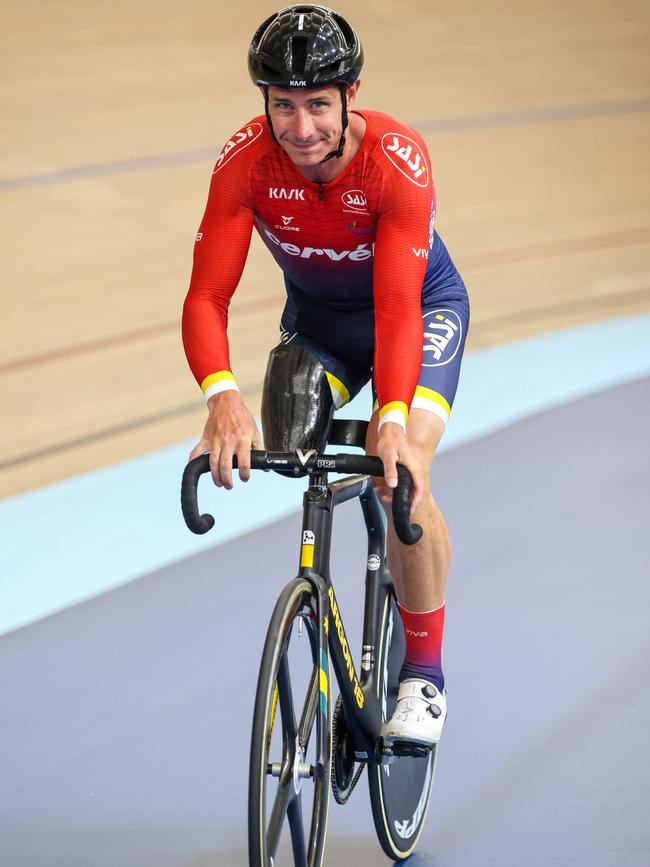

His greatest regret is the breakdown of his marriage, 7 years after the accident.
“I will always appreciate Carys and the sacrifices she made. She was a gigantic part in my success, I wouldn’t have been able to do what I did without her,” he says.
“I put so much of my time and effort into sport that I forgot about the other important things in life.
“I didn’t see my parents or my brother or catch up with my friends enough.
“Would I turn back time? Of course I would, I don’t want to be a statistic of a failed marriage. I’ve just got to know that I can do better for my next relationship, do better with my friends.
“I need to invest my time, when I have it, far more wisely.”
Right now, with the World Championships and Paralympics looming large, every single minute is accounted for.
Darren won’t know if he’s qualified for Paris until this time next year and he’s not taking selection for granted.
“I’m riding well, my body is feeling good so hopefully things keep trending in that direction,” he says.
When it comes to describing himself, Darren avoids the words resilient and inspiring.
“I just didn’t give up on myself,” he says.
“I just did the right things for me. That should be something that we all have in us, it’s just having enough self-respect and love for yourself that you do anything.”
And he wants to help others be the best version of themselves in the future by using his unique skillset to mentor others.
He tells of a man he met, who was on the verge of quitting his job. 7 months later, after a series of conversations with Darren, he’d turned his job and his life around.
“He was a big, burly guy with a beard and he was nearly in tears. He said ‘I don’t know how I can thank you enough.’
“I didn’t think I had a skillset that makes me a mentor, but I have a mindset of looking at something and asking how I can change this or adapt to make this better for me,” he says.
“I don’t tell someone what to do but steer them in the right direction, so they have that epiphany, they feel like they’ve come to their own conclusion of how to help themselves.
You get something way greater than a pay cheque out of that.”
There’s not a day that goes by that Darren doesn’t think about the freeway accident.
“It’s impossible not to, I wake up and I can’t stand on two feet,” he says.
“Every time I see a truck going too fast down a hill, all of those things still massively linger in my head – it’s something I’ve just had to deal with along the way.
“You can’t let that stuff rule you but there’s no way I’m going to forget it.
“It’s just one of those things that’s forever going to be a part of me.”
Darren struggles with standing out in a crowd, but he’s found his sweet spot in life.
“I’m still not a super confident person off the bike. I’ve just worked my butt off to feel like that’s the place where I’m meant to be and meant to succeed.
“I’m very lucky in a way to have found that avenue. I enjoy it and I get to travel the world doing it.
“I’d be half the person I am now without the accident.”
Watch this space. I have no doubt this remarkable South Australian will take us all on one hell of a ride in the years to come.
More Coverage
Originally published as Darren Hicks hard road back to World Championship and Paralympic glory





